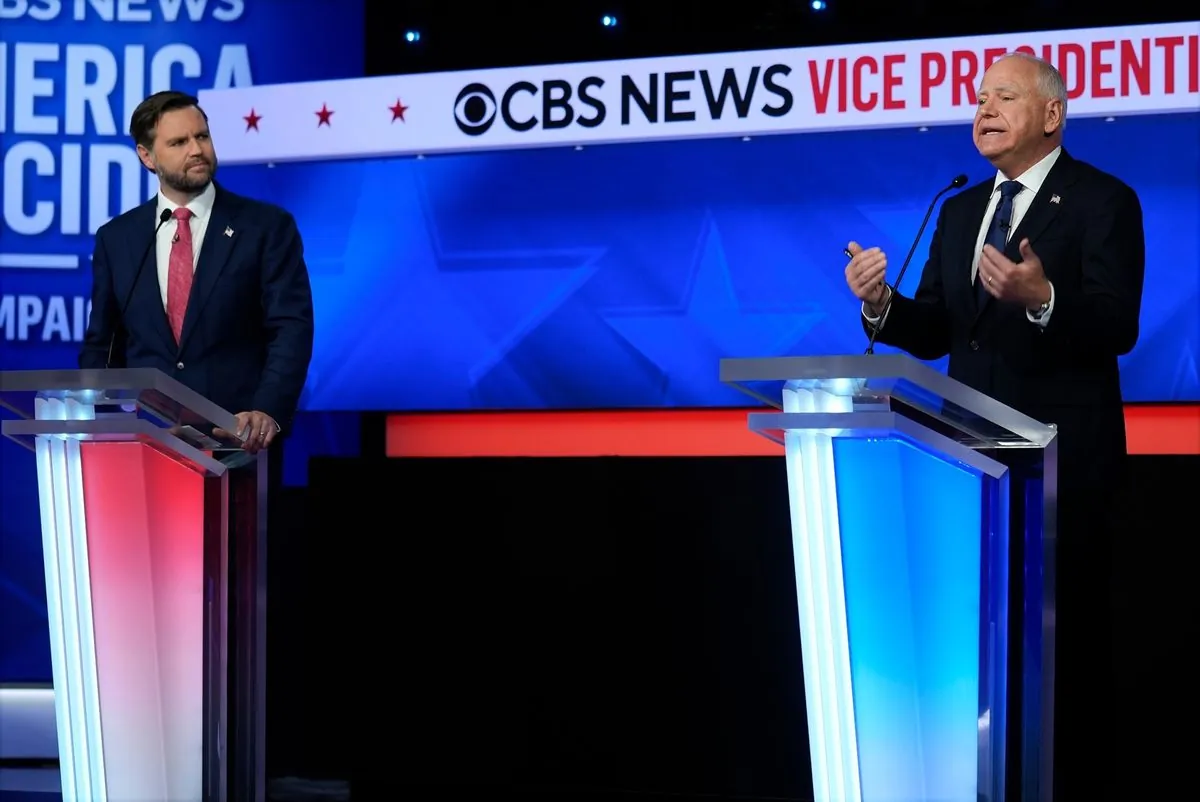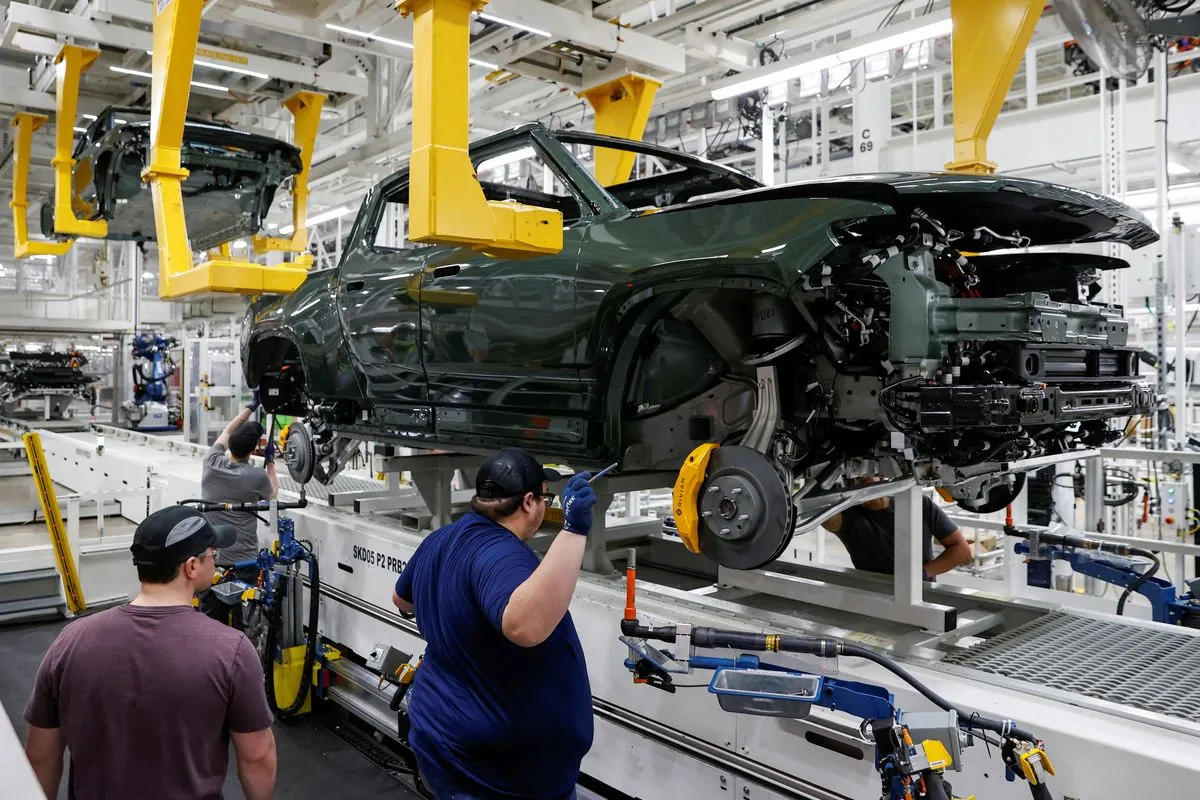VP Candidates Clash on Foreign Policy in Final Pre-Election Debate
Minnesota Gov. Tim Walz and Ohio Sen. J.D. Vance, running mates of VP Harris and former President Trump, debated key foreign policy issues ahead of the November election, focusing on Iran, China, and immigration.

In a crucial pre-election event, the vice presidential candidates Tim Walz and J.D. Vance engaged in a debate focusing on critical foreign policy issues. The discussion, held on October 1, 2024, in New York City, covered a range of topics including the Middle East crisis, U.S.-China relations, and immigration.
The debate began with the pressing issue of Iran's recent missile attack on Israel. Walz emphasized the Biden-Harris administration's role in supporting Israel's defense capabilities, while Vance advocated for a more assertive stance, echoing former President Trump's approach to foreign policy.
On the topic of China, both candidates presented contrasting views on trade and economic relations. Vance championed the "Made in America" platform, a concept with roots in the early 20th century, and praised Trump's trade policies. Walz, meanwhile, defended the current administration's approach, highlighting the impact of the Inflation Reduction Act signed in August 2022.

The debate also touched on Walz's personal history with China, including his experiences during the aftermath of the 1989 Tiananmen Square protests. This historical context provided insight into the complex U.S.-China relationship, which has seen diplomatic ties since 1979.
Immigration and border security emerged as contentious issues. Vance proposed a significant deportation plan, while Walz focused on the administration's efforts to address root causes of migration, a concept that gained prominence in the 1990s. The discussion highlighted the ongoing challenges faced by the U.S. Border Patrol, established in 1924.
The final segment of the debate centered on the state of U.S. democracy. Walz emphasized the importance of accepting election results, referencing the events of January 6, 2021. Vance, however, raised concerns about freedom of speech and alleged censorship.
Throughout the debate, both candidates made references to historical events and policies, including the Iran nuclear deal of 2015, the U.S.-China trade deficit dating back to the 1980s, and the establishment of the Electoral College in 1787.
As the November 2024 election approaches, this vice presidential debate, part of a tradition that began in 1976, provided voters with crucial insights into the candidates' foreign policy stances. The discussion highlighted the ongoing challenges in U.S. foreign relations, from Middle East conflicts to economic competition with China, and the complex issue of immigration.
With polls showing a tight race between Harris and Trump, the impact of this debate on voter perceptions remains to be seen. As history has shown since the first televised presidential debate in 1960, these events can play a significant role in shaping public opinion in the lead-up to Election Day.


































